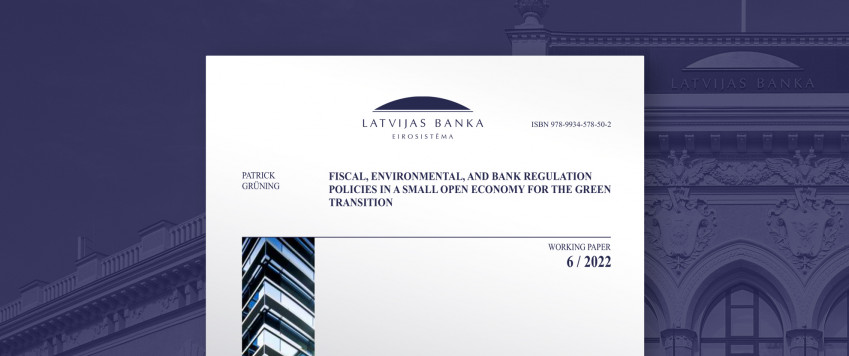Fiscal, Environmental, and Bank Regulation Policies in a Small Open Economy for the Green Transition
Working Paper 6/2022

Abstract
This study develops a small open economy dynamic stochastic general equilibrium model with green and brown intermediate goods, banks subject to capital requirements, and public investment. The domestic economy might face domestic or foreign carbon taxes and an emissions cap. The model is used to analyze which environmental, fiscal, and bank regulation policies are effective facilitators of the domestic economy’s green transition and the costs involved. Among the policies that can generate an exogenously imposed and fixed emissions reduction, most costly is the exogenous world brown energy price increase, followed by the emissions cap reduction, while the introduction of domestic carbon taxes does not change GDP in the long run. The reason for this stark difference is that domestic carbon taxes and emissions cap violation penalties are used to stimulate public green investment. However, only domestic carbon tax revenues are substantial as brown entrepreneurs do not violate the emissions cap in equilibrium. Bank regulation policies and other fiscal policies are not capable of generating large emissions reductions. During the green transition induced by domestic carbon taxes, the first years of the transition are characterized by a run on brown energy in anticipation of higher prices in the future.
Keywords: small open economy, climate transition risk, energy, environmental policy, bank regulation, public investment
JEL codes: E30, F41, G28, H23, H41, Q50
Textual error
«… …»


